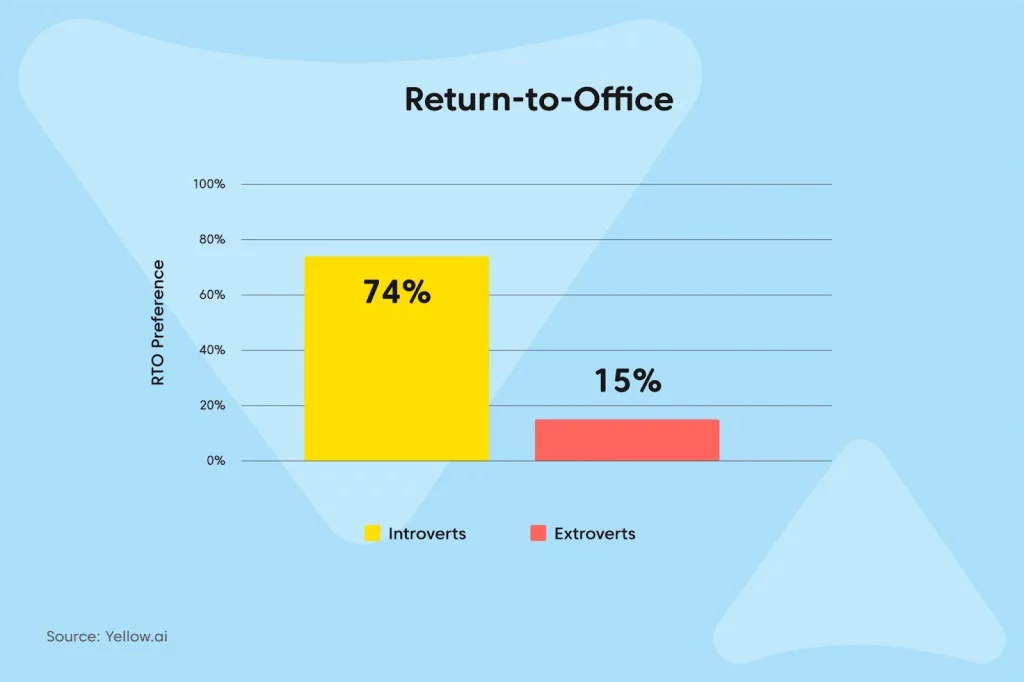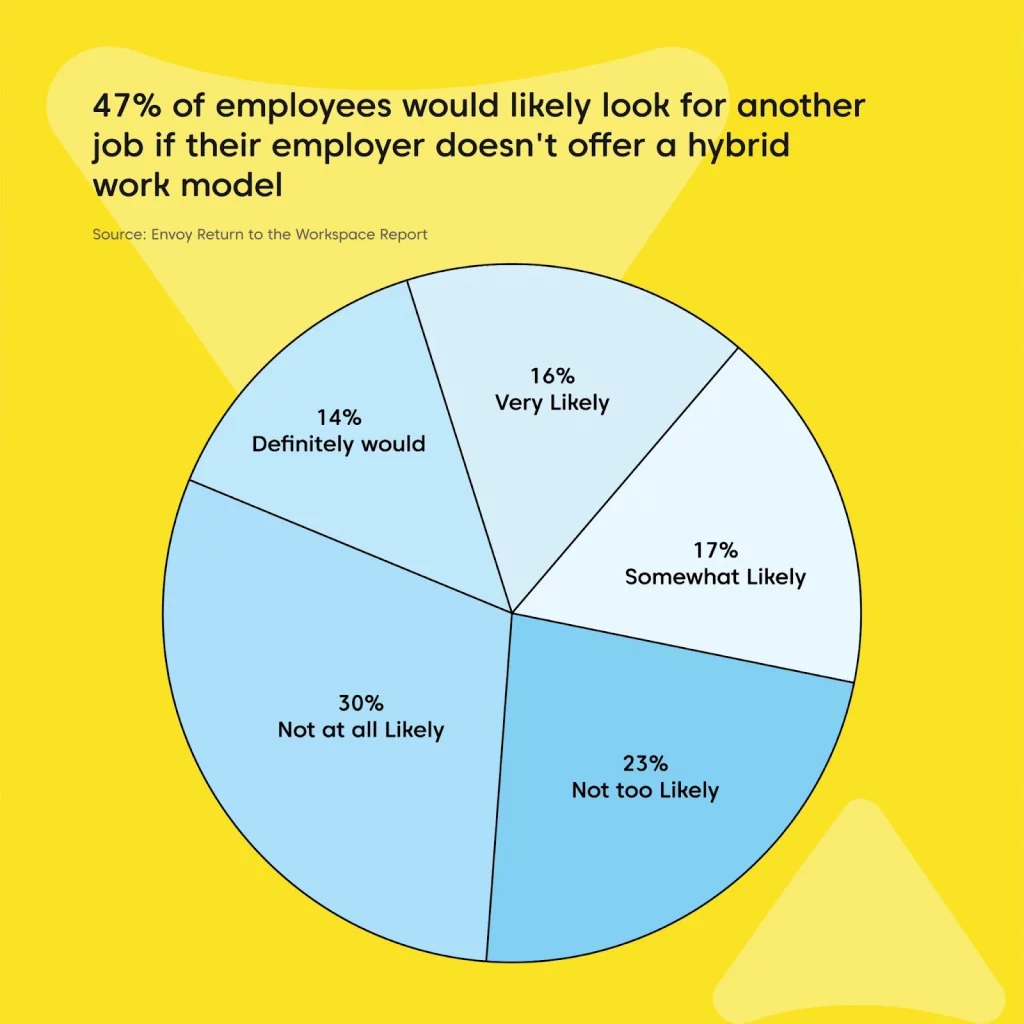A lot of mixed preferences surround return-to-office plans; is a hybrid workplace the best way forward?
After two years of working remotely, employers are thrilled to welcome their workforce back to the office. “I can’t tell you how much I am looking forward to being together again,” Apple Chief Executive Tim Cook told his employees in a memo last week, outlining his company’s April 11 hybrid back-to-work plan.
Myers-Briggs Co, a personality profiling firm, also conducted research that found not all employees are thrilled about return-to-office (RTO). Up to 82% of extroverted workers are ambivalent about RTO, with 15% preferring full-time remote work. On the contrary, 74% of self-described introverts do not desire full-time remote work and are looking forward to some in-office time.

This puts CEOs and HR leaders at a crossroads when it comes to enforcing policies to regulate a new normal. Employee preferences may not be as black-and-white as management would want and each employee’s choice to work where they feel most creative and productive may be different. Unfamiliarity with employees’ needs and expectations can accelerate the executive-employee disconnect.

“The executive-employee disconnect may represent a division between what’s best for the organization and what’s best for the individual”, says Art Markman, a professor of psychology and marketing at the University of Texas at Austin.
Executives believe that working from office improves productivity and idea generation. The movement to bring people back to the office may also represent a need for an improved sense of belonging that has been broken during the pandemic. The workplace, according to a recent report, enables that sense of belonging.
On the other hand, employees might feel that they work better at home and find commuting two hours to work every day counterproductive. So, what should employers do to bridge this gap and retain employees as they plan the return to in-person work?
In a recent interview, Neeru Mehta, CHRO, Yellow.ai mentioned that when it comes to understanding work preference, Yellow.ai does employee polls, but, “it’s a mixed bag.”
“You don’t get like, a clear thing, that no, we all want to work remotely, or yeah, we all want to come to the office,” she said. Mehta highlighted that 60-70 percent of the workforce has never entered the office, where they’ve got hired remotely. “So, we are figuring out a plan/model where we will give a lot of flexibility along with room for collaboration,” she added.
Mehta does feel that there’s a significant part of the workforce that loves to meet up, collaborate and work together. “The pandemic has shown us that everything can be fluid, right? And how do you make that flexibility work for employees through different creative ways is where I think I will focus,” she said, concluding, “Whatever the plan is, it’s going to be very employee-centric.”
The fact is, corporate work life has likely changed forever. No one can say for sure what will unfurl but there is one thing that remains constant, and that is changing. As companies first faced the pandemic, they were forced into a new way of working overnight. However now, executives have the choice to approach the new normal in phases. Hastening RTO will only cause what’s shaping out to be ‘the great disconnect’ of 2022 and may even increase the attrition rate for enterprises worldwide.
It will be critical for executives to admit that they don’t have all the answers as their firms migrate to hybrid working models. Involving their employees in the planning of the company’s future operations can help them figure out what the best longer-term working model is.
On the other hand, employees must also understand the novelty of the situation and how HR leaders and managers are navigating the new normal to implement a system that works for the majority of people. Patience, communication, and inclusion will go a long way in making this transition hassle-free and smooth, for everyone involved.

















